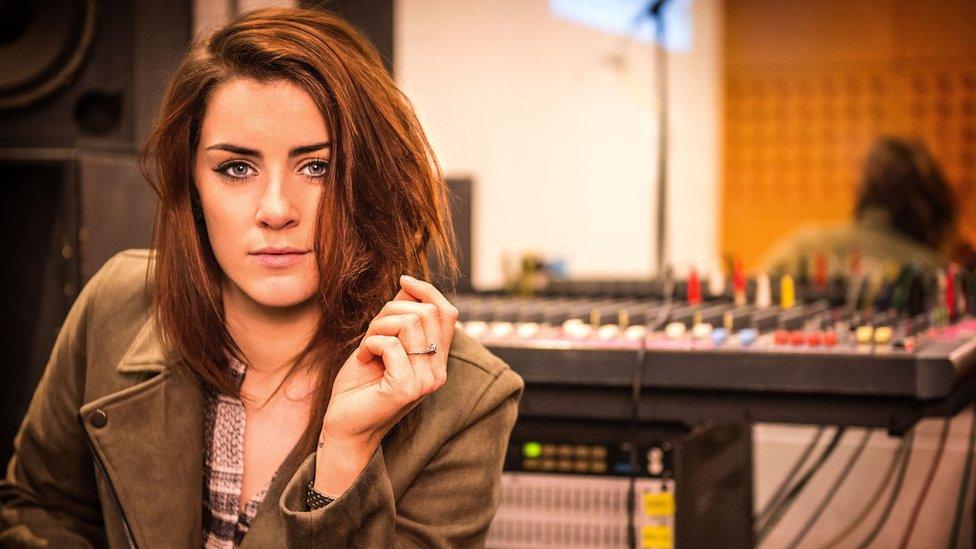Eurovision in Ukraine: Controversy over Russian entry
- Published
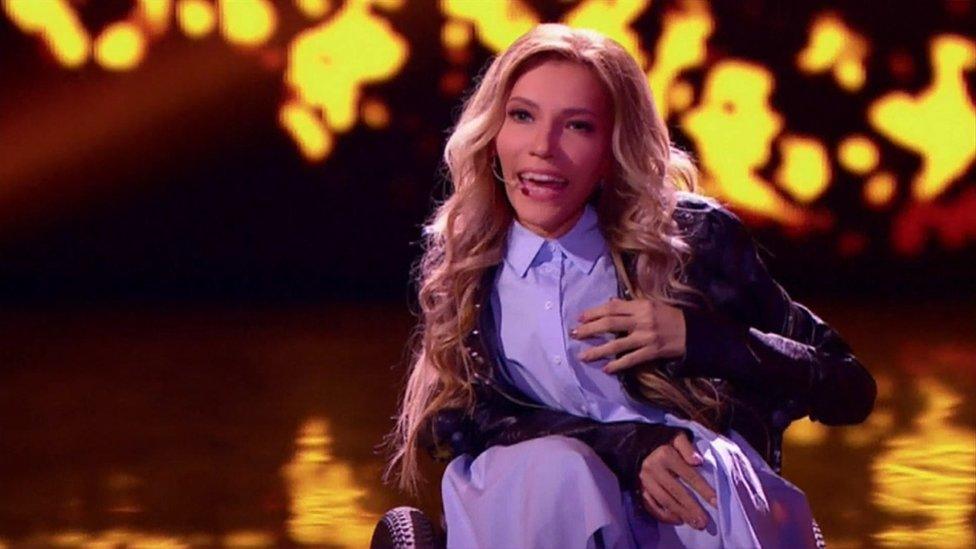
Former Russian X Factor contestant Julia Samoilova will represent the country in Kiev
Russia has announced it will now take part in Eurovision 2017 in Ukraine, appearing to end speculation of a boycott for political reasons.
Julia Samoilova is set to represent her country in Kiev in May with the song Flame is Burning.
However, her admission she performed in Crimea since it was annexed by Russia in 2014 may compromise her attendance.
Ukraine's SBU security service has blacklisted 140 Russian artists, although she is not on the list so far.
Samoilova, 27, has confirmed that she sang in Crimea in 2015.
Russia and Ukraine have been locked in political conflict since the annexation of the region three years ago.
An SBU spokeswoman, Olena Gitlyanska, wrote on Facebook it would now "study the question and take a balanced decision on her entry into Ukraine".
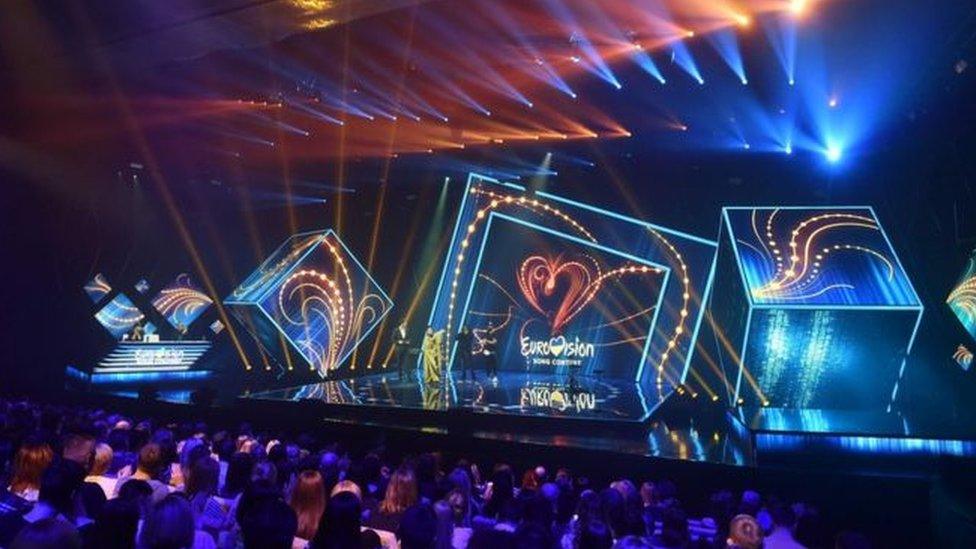
Ukrainian rock band O.Torvald were chosen to represent the host nation last month
Kremlin spokesman Dmitry Peskov, speaking to Russian news agency TASS, external, denied that Samoilova's selection was a provocation by Russia.
He said: "Undoubtedly, we would like to avoid politicising the Eurovision contest.
"We believe it absolutely unacceptable as far as the development of this international contest is concerned."
Russia announced Samoilova as its 2017 entry on state TV on Sunday, just one day before the nomination deadline.
Russian MPs and musical artists had been among those urging a boycott of Eurovision over its perceived politicisation.
Ultra-conservative lawmaker Vitaly Milonov said that Russians would be "unwelcome guests in a country seized by fanatics".
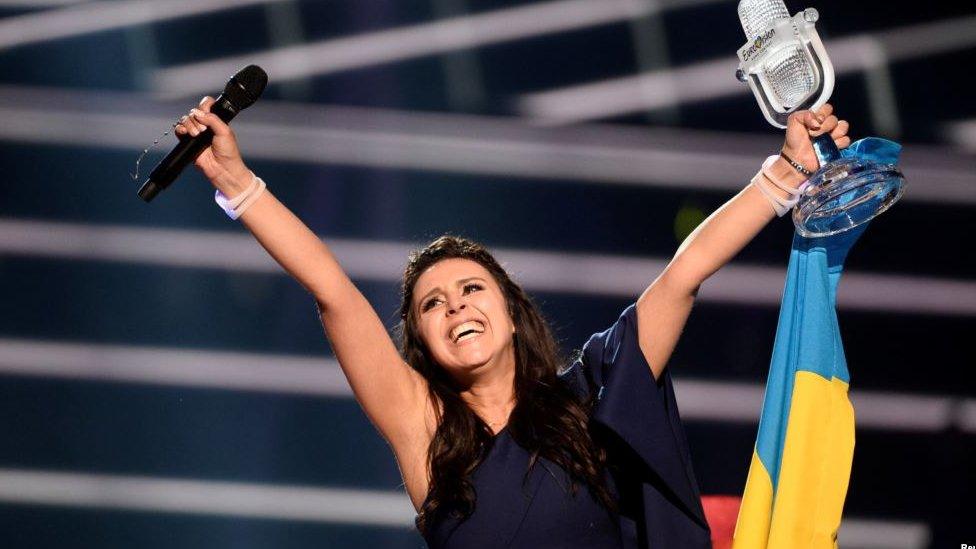
Singer Jamala won the 2016 competition for Ukraine in Stockholm in May 2016
Ukraine is hosting the competition after its singer Jamala caused an upset by winning in Sweden last year.
Her song, 1944, was about Joseph Stalin's mass deportation of the Crimean Tatars during World War Two.
In addition to the Crimea flashpoint, Ukraine accuses Moscow of arming separatist rebels in its eastern Donbas region, in a conflict that has claimed 10,000 lives since 2014.

Who is Julia Samoilova?
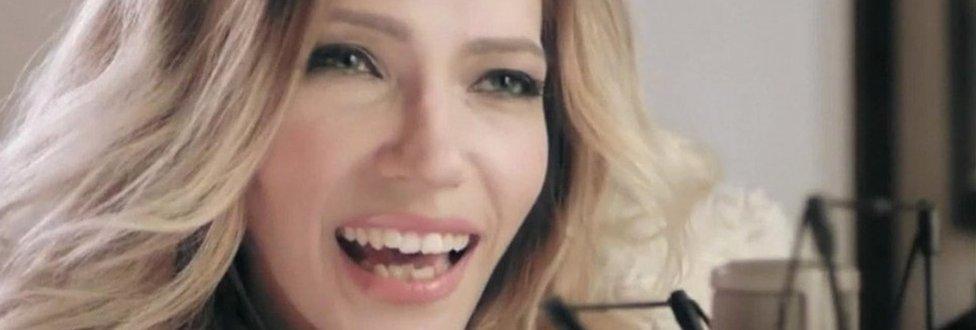
Samoilova was selected just one day before the 13 March deadline for nomination
The singer-songwriter was born in April 1989 in Ukhta, Russia
Her song Flame is Burning was composed by Leonid Gutkin, who also produced Russia's 2013 and 2015 entries
The Russian entrant has been in a wheelchair since childhood, suffering from spinal muscular atrophy: a neuromuscular disorder causing muscle wastage
She was a 2013 finalist in Russia's X Factor competition and performed at the opening ceremony to the 2014 Sochi Winter Paralympics

Samoilova is due to perform in the second semi-final of the Eurovision Song Contest on 11 May in Kiev.
If she wins through she will take part in the final two days later.
- Published3 March 2017
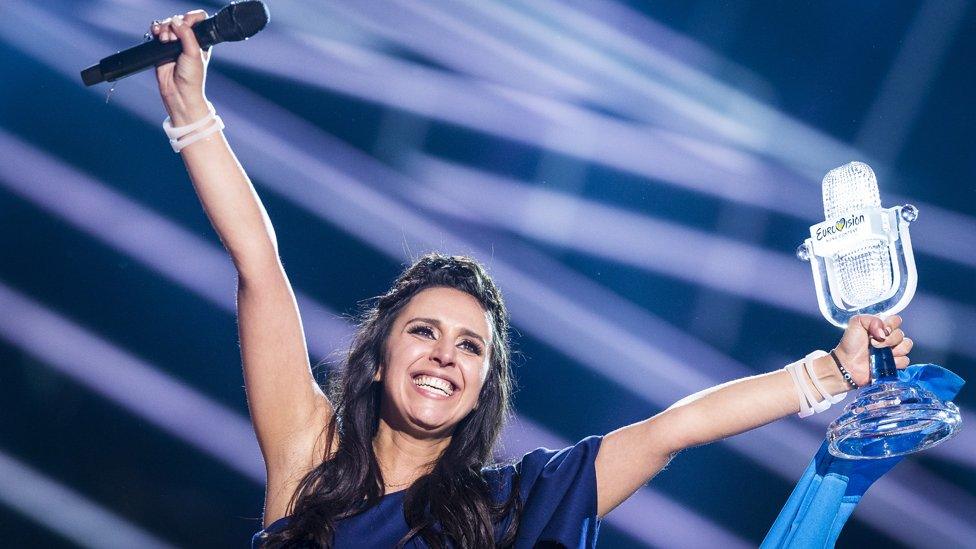
- Published15 February 2017
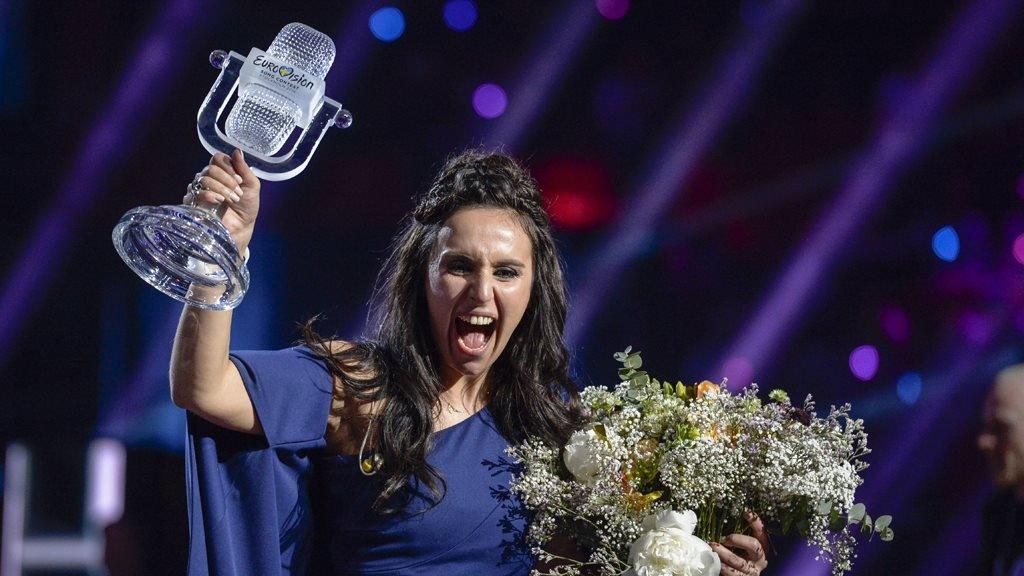
- Published28 January 2017
